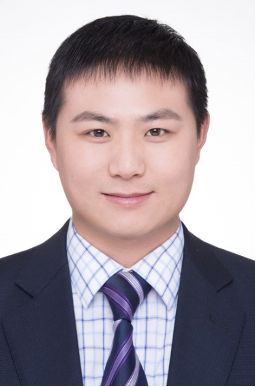徐见容 副研究员

徐见容,博士,副研究员
在武汉大学先后获药学学士学位和药物分析学硕士学位,之后获上海交通大学医学院药理学博士学位,其间在药明康德任职Scientist从事药物分析研究。博士毕业后先后在上海交通大学医学院和澳大利亚Monash University进行从博士后训练。
研究领域主要聚焦阿尔茨海默病等重大神经退行性疾病的重要靶标(如M1胆碱受体、β淀粉样多肽等),综合应用药物-靶标互作分析(SPR技术)、受体功能表征、计算机模拟等多种交叉学科方法,开展天然活性分子的药理作用机制和规律的研究,为靶标调控新途径提供理论依据,并发掘候选新药。
目前已在Cell Research、Nature Chemical Biology、Nano Research、FASEB J等杂志发表SCI论文50余篇(总IF=278;6篇IF>10;20篇IF>5;h-index=12),其中第一/通讯作者(含共同)论文9篇(均IF>4),申请/授权专利9项,获教育部科技进步一等奖1项,上海市科技进步一等奖1项,中华医学科技二等奖1项。
主持国家自然科学基金青年基金、中国博士后基金、中国博士后国际交流基金等,入选上海市科委高校青年教师培养资助计划、上海中医药大学杏林青年学者计划及上海交通大学优秀青年教师支持计划;作为研究骨干参与国家重点基础研究发展计划(973计划)、科技部国际合作专项等国家重大项目。
XU Jianrong, Ph.D., Associate Professor
He completed his bachelor’s degree in Pharmaceutical Science and master’s degree at in Pharmaceutical Analysis Wuhan University. After one year’s working at Wuxi Apptec as Pharmaceutical Analysis Scientist, he returned to academia to pursue his Ph.D. in Pharmacology and then performed two years’ postdoctoral research at Shanghai Jiao Tong University in Prof. Hongzhuan Chen’s lab. Then, he received another two years’ academic training at Monash University in Prof. Arthur Christopoulos’ and Dr. David M. Thal’s lab.
He has mainly focused on key targets of important neurodegenerative diseases such as Alzheimer’s Disease (e.g. M1 muscarinic acetylcholine receptor and β-amyloid peptide). By employing interdisciplinary technologies, such as drug-target interaction analysis methodology (e.g. SPR analysis), receptor function characterization and in-silico modeling, he devoted himself to elucidate pharmacological mechanisms for natural bioactive molecules, provide evidence for novel ideas of target modulation and develope drug candidates.
He has published more than 50 papers on SCI journals, such as Cell Research、Nature Chemical Biology、Nano Research、FASEB J, with an h-index (2020) of 12. He applied 9 patents and four of them have been granted. Besides, the research achievements won 3 awards including Ministry of Education Science and Technology Progress Award (1st class), Shanghai Science and Technology Progress Award (1st class), and China Medical Science and Technology Award (2nd class).
He has undertaken the national young investigator fund from the National Natural Science Foundation of China and 2 financial grants from the China Postdoctoral Science Foundation. He was also selected to join 3 other supporting projects from the government and the universities.